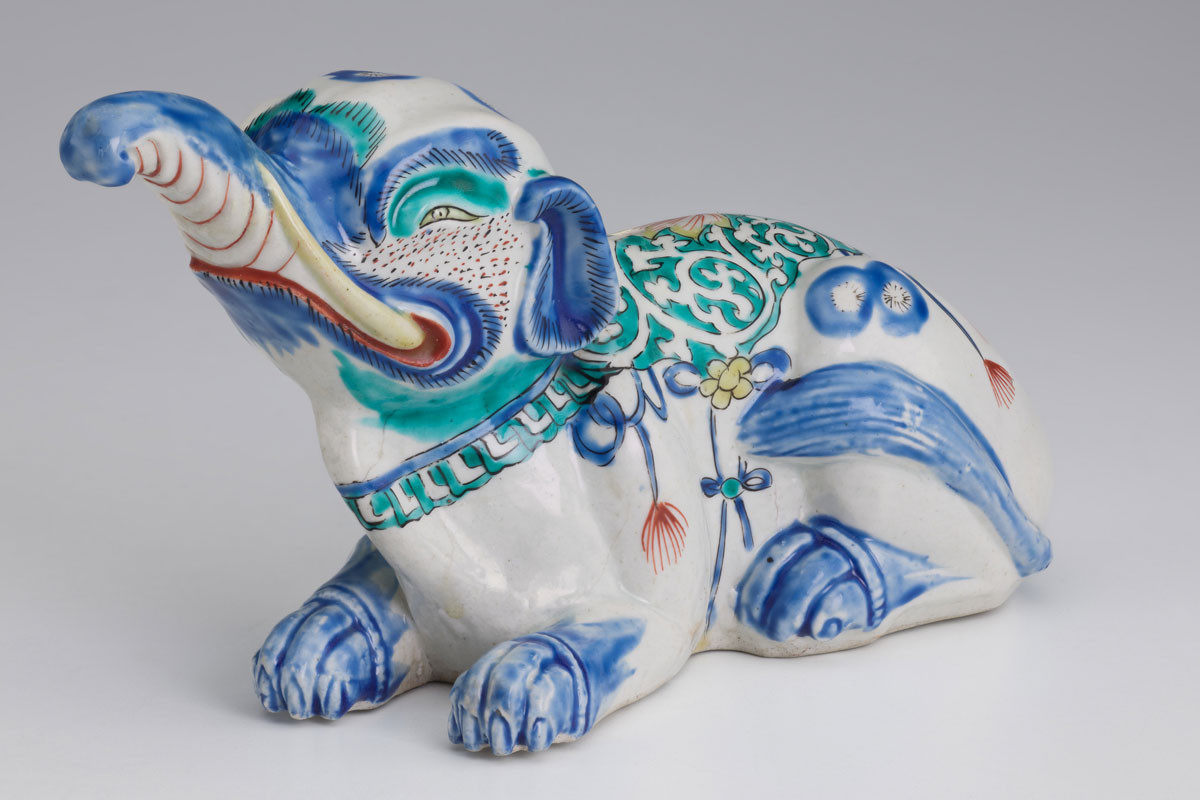
Unpacking Provenance | A Kakiemon Model of an Elephant

In this webinar, a panel of four experts discuss a Kakiemon model of an elephant from the collections of the NMAA, focusing on provenance research approaches and resources. Manufactured in seventeenth-century Japan, this porcelain elephant likely arrived in Europe as cargo on a Dutch East India Company trading vessel. In examining this object, panelists will articulate research questions, brainstorm approaches, and discuss methods to track down answers about both the object’s journey and the life histories of the individuals who encountered it.
The online series Unpacking Provenance: Retracing the Histories of Asian Art brings together cross-disciplinary specialists to explore provenance research processes and share resources. Discussions focus on a single object, exploring a variety of innovative, strategic, and collaborative approaches to inquiry.
Unpacking Provenance is part of a larger collaboration between the Smithsonian Institution and the Stiftung Preußischer Kulturbesitz that seeks to cultivate the global network of provenance researchers and promote exchange. Previous programs include Hidden Networks: The Trade of Asian Art (2020–2022) and Provenance of Asian Art: A Collaborative Workshop and Symposium (2023).
Generous support for the museum’s provenance research and object histories program is provided by the David Berg Foundation and the E. Rhodes and Leona B. Carpenter Foundation.
Speakers include
Martha Chaiklin, Independent Scholar
Menno Fitski, Rijksmuseum, Netherlands
Sol Jung, National Museum of Asian Art, Washington, DC
Mark Westgarth, University of Leeds, United Kingdom
Facilitated by
Joanna M. Gohmann, National Museum of Asian Art, Washington, DC
Christine Howald, Zentralarchiv/Museum für Asiatische Kunst, Staatliche Museen zu Berlin